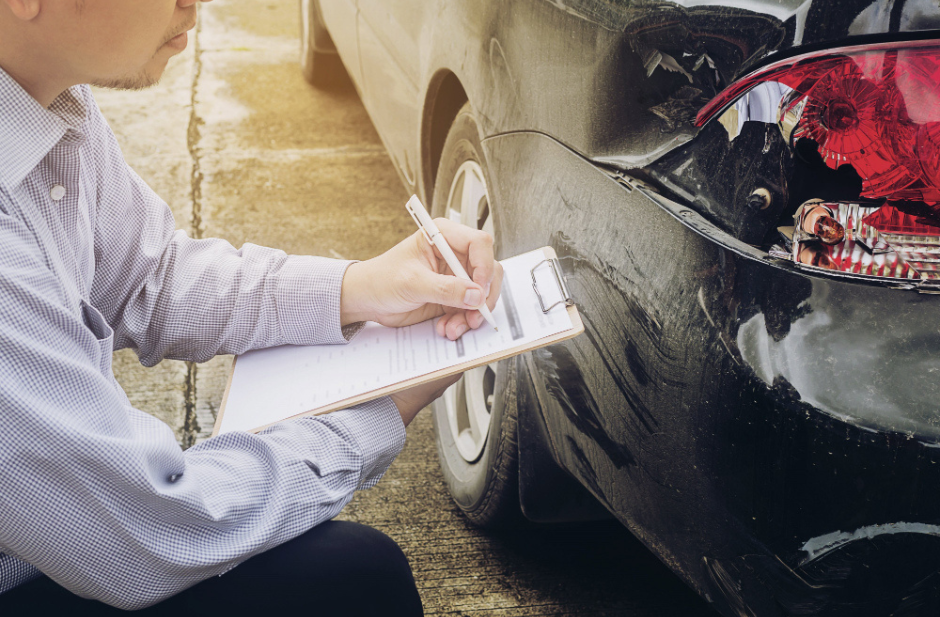If you have been searching about “car accident Ontario” you are probably searching for legal help! And guess what? You have reached the right place!
Did you know that there were around 27.000 car accidents in Ontario recorded in the year 2023 alone? Among these, 568 were fatal in nature, and around 26,400 were personal injury cases.
Almost 35% of car accidents generally result in injuries that need medical attention. But, seeking medical help does not end the journey as the expenses keep rising.
While you might feel like you can take care of the bills, you soon realize that the injuries have left you stuck at home, unable to earn a livelihood for a while.
This is why you need to have a legal professional who will help you get the compensation and claim your expenses.
Whether you’re dealing with minor or more serious injuries, getting medical attention and speaking with a car accident lawyer in Toronto can help ensure your rights are protected.
Hi. In today’s blog, I will be talking about a car accident in Ontario, things to do after that, and how a lawyer can help you out in a situation like that. So, keep reading this blog till the end, and thank me later!
Key Points
- Make sure you are in a safe location and concentrate on your safety. To alert other cars on the road, switch on your warning lights and look for any obvious injuries.
- Documenting the accident scene thoroughly with photographs, notes, and witness accounts is essential to the success of your personal injury case and insurance claim.
- Inform police enforcement of the collision right away and provide an honest description of what transpired.
- Observe all legal reporting requirements to protect yourself. Inform your insurance provider right away.
- To speed up the claims procedure, don’t forget to submit all necessary data and supporting paperwork.
- Regardless of how small your injuries appear, you should consult a doctor as soon as possible. Any claim pertaining to an injury must include medical records.
- Don’t make these common mistakes, such as not reporting the accident, not gathering enough evidence, or leaving the scene early.
Immediate Steps After an Accident

Accidents are disorienting and stressful, knowing what to do in the immediate aftermath can help protect your rights and well-being.
By taking steps quickly but with care, you’ll be protecting your claim and your safety and that of others.
1. Ensure Safety for All Involved
The first imperative is to do no harm. Look for any injured passengers, drivers or pedestrians. If it’s safe to do so, get out of the way of oncoming traffic to avoid any additional crashes.
Your hazard lights and/or road flares will help warn approaching traffic of what’s ahead. Staying calm is very important.
Reassuring other people involved goes a long way in keeping the situation under control until first responders arrive.
2. Move Vehicles if Safe to Do So
If you can move the vehicles without posing a danger to others, move them to a safer location. If so, take photographs of their original positions for documentation before moving them.
Be as predictable as possible so other drivers know what to expect and can act accordingly.
3. Contact Emergency Services Immediately
Call 911 to notify the police of the accident if there are any injuries or serious property damage. Give the dispatcher as much information as possible regarding the type and location of the accident.
By remaining on the scene, law enforcement will be able to conduct a thorough investigation.
4. Document the Scene Thoroughly
Document everything, including property damage, medical injuries, and the area around the incident, including weather conditions and road signage.
Take detailed notes of everything, including license plate numbers, vehicle makes/models, and a statement for any witnesses.
A clear, detailed record will help your case down the line.
5. Exchange Insurance and Contact Information
Share and compile accurate insurance information, driver’s license numbers, and vehicle registration numbers. Checking this information holds everyone responsible.
On-the-scene documentation will be invaluable in the future.
6. Notify Authorities When Required
In Ontario, report all accidents with damages over $2,000 total to police or a Collision Reporting Centre (CRC).
Getting a copy of the police report is important for your car insurance claim and any lawsuit you may pursue.
Know your local reporting requirements to prevent challenges.
Car Accident Ontario: How to Report an Accident in Ontario?

After an accident, unique reporting requirements exist in Ontario, making navigating the process confusing. Reporting accident procedures vary based on the severity of the accident.
Acting quickly makes the insurance claim process easier and helps protect you from legal repercussions.
Understanding what we need to do after an accident is critical to keeping us safe and protecting our rights.
When to Report an Accident to Police
All accidents resulting in injury or death need to be reported right away to the police. This will help guarantee an honest investigation and an accurate, official record.
If damage is over $2,000 to vehicles or property, attending a Collision Reporting Centre is required by law.
Neglecting to report major accidents can result in criminal charges. You may be liable for fines or even criminal charges if you leave the scene.
Police reports are crucial pieces of evidence for insurance claims and impending lawsuits.
How to File a Police Report
When police officers arrive at the scene of the collision, be sure to comply with their requests and give your statement as directed.
Give thorough, in-depth responses that include specific details about the events leading up to the accident.
After the report is finished, be sure to obtain an official copy for your records; this is a crucial document to have in liability cases as well as insurance claims.
Photographs and witness testimony are examples of documentary evidence that ought to be shared.
Reporting Minor Accidents Properly
It may not be necessary for police to respond to a small collision if there are no injuries and the damages are less than $2,000. Documenting the scene as thoroughly as possible is essential.
Don’t forget to give the other driver your contact and insurance information, and within 24 hours, report the collision to a collision reporting center.
Your claims will be processed more quickly, and you won’t be denied coverage if you have the proper paperwork.
Do Parking Lot Accidents Require Reporting?
Even though parking lot incidents are typically not as serious, they should still be reported if there are injuries or damages over $2,000.
Spend time recording the situation, obtaining contact and insurance details, and reporting to a collision reporting center as necessary, even in low-impact collisions.
We should be adequately covered if there are any disagreements or if we need to file through insurance if we have this documentation on hand.
Consequences of Not Reporting Accidents
Not reporting could jeopardize any claims you attempt to file after, resulting in delayed payment or refusal to pay.
Legal ramifications are a concern, such as a default fine of no less than $5,000 if unable to show proof of insurance.
Failing to report incidents makes liability claims more difficult and can result in higher future premiums, even when we aren’t at fault.
Ontario Car Accident: Legal and Insurance Obligations
After a car accident in Toronto, navigating the legal and insurance obligations can be a complicated process.
Following these obligations will keep you on the right side of the law and better preserve your right to receive compensation. Below, we dig more into the most important areas to focus on after a crash.
Informing Your Insurance Provider
It is very important to report the incident to your insurance company as soon as possible—within seven days of the accident, if not sooner.
This allows them to begin the claims process. They will help you fill out all the necessary forms, such as the application for accident benefits, which must be submitted within 30 days.
Document everything, including the police report and any evidence you collected at the accident scene.
Timely reporting is essential to prevent any delay or complication from surfacing. By maintaining a log of every conversation you have with your insurer, you can ensure that everyone is on the same page every step of the way.
Time Limits for Reporting to Insurance
Every insurance policy has strict deadlines to report an accident, and not doing so can be the difference between getting compensated fairly or not. Failing to meet these deadlines can put your accident benefits in peril.
Marking these important dates on a calendar and keeping lines of communication open with your insurance company will get you and your claim moving in the right direction.
Understanding Your Insurance Policy
Understanding your auto insurance policy is the best way to know what coverage applies. Ontario law requires insurers to provide no-fault coverage, such as Statutory Accident Benefits and Direct Compensation – Property Damage (DC-PD).
You may require other endorsements based on your unique circumstances. Understand terms like “liability coverage” and discuss with your insurance agent to get any questions answered.
Working with Claims Adjusters
Claims adjusters are key figures in deciding how much compensation you receive by evaluating damages and eligibility. The more accurate and complete information you provide, the easier the process will be.
Having a paper trail of every interaction prevents misunderstandings and makes it easier to settle conflicts if they arise.
Legal Obligations After an Accident
Ontario law requires complete and truthful information to be furnished to enforcement authorities and to cooperate with police investigations. Meeting these legal and insurance obligations is essential to prevent liability.
Should any disputes develop, having consulted with a legal expert will help make sure you are on solid ground and are not violated.
Common Mistakes to Avoid After a Car Accident in Ontario
After a car accident, especially one that causes injury, the emotional strain can cloud your judgment.
Understanding these common missteps can help you avoid them and safeguard your rights, streamline the claims process, and achieve the full and fair compensation you deserve.
Here are some of the major mistakes that can lead to dire impacts.
Failing to Report the Accident
Failing to report a crash, even a little fender bender, can endanger your future insurance claims.
Always call the police to report and investigate serious accidents. Failing to do so can result in fines of up to $2,000 and/or jail time.
Police reports are incredibly important in determining fault and are often needed when dealing with insurance companies.
Even for non-injury collisions, you must report to a Collision Reporting Centre within 24 hours. When in doubt, it’s always best to report to avoid more serious issues down the line.
Not Collecting Enough Evidence
That’s why having strong evidence is critical to making a successful claim. At the scene, take comprehensive, clear pictures of each vehicle, damage, and the roadway and surrounding environment.
Collect contact details for any witnesses since these statements can help back up your side of the story. Record interactions with other drivers to avoid misrepresentation.
Without clear evidence, insurance companies will likely fight your claims, making it more difficult for you to receive the compensation you’re entitled to.
Leaving the Scene of the Accident
Not only is leaving the scene of an accident illegal, but it is harmful to your case. Staying at the scene gives you the opportunity to exchange information, report the incident, and gather evidence.
Fleeing not only exposes one to criminal prosecution but also makes it difficult to mount an effective defense in any ensuing civil action.
By staying in your lane, you show that you were taking responsibility and following Ontario’s traffic laws, which will bolster your case in any legal battle or insurance claim.
Delaying Medical Attention for Injuries
Avoiding acute medical attention can lead to worsening injuries and permanent disability. Injuries such as whiplash or internal trauma can take time to manifest symptoms.
Timely evaluation means that these injuries are recorded early on, creating invaluable evidence for your claim.
Medical records and treatment history are important when seeking compensation for health care expenses and future requirements.
In addition to making it more difficult to recover, delays can undermine your case.
Your Legal Guide: Seeking Assistance and Resources After Car Accident in Ontario
After a serious accident, getting immediate help and the right resources is incredibly important.
From immediate emergency responses to comprehensive long-term legal support, understanding who to turn to can help make a difficult and chaotic situation more manageable.
Below, we outline key steps you can take, what resources and assistance are available, and how to continue on your path to recovery and justice.
Contact Numbers for Emergency Services
Having essential emergency contacts readily available ensures swift action during critical moments:
- 911: For police and medical emergencies requiring urgent attention.
- For reporting non-emergency incidents where there is no threat to life or health.
- Towing services: Arrange vehicle removal to prevent further disruptions.
- Send written notification within 7 days to start accident benefits claims.
















